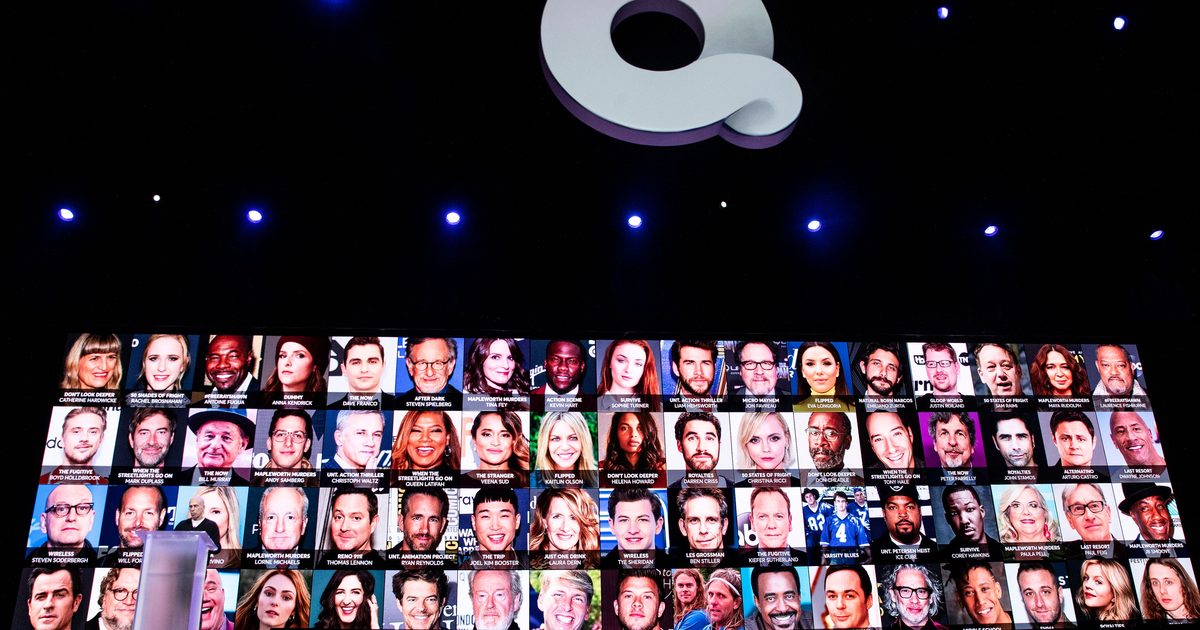
In less time than it takes to make a baby, Quibi is shutting down.
The short-form video streaming subscription service founded by Jeffrey Katzenberg is set to cease operations just six and a half months after its April launch. Katzenberg and CEO Meg Whitman confirmed the news in an open letter.
“[I]t is with an incredibly heavy heart that today we are announcing that we are winding down the business and looking to sell its content and technology assets,” they wrote.
“While the result was not what any of us wanted, we did accomplish a number of things and we are very proud of what the talented Quibi team has built with the blood, sweat, and tears that they poured into this business over these past two years.”
Word of a looming shutdown first surfaced on Wednesday afternoon, with the Wall Street Journal reporting that Katzenberg had called investors to share the news, according to “people familiar with the matter.” Recent efforts to secure a sale for the service never panned out.
In their statement, Katzenberg and Whitman indicate that Quibi did not succeed “[l]ikely for one of two reasons: because the idea itself wasn’t strong enough to justify a standalone streaming service or because of our timing.”
They continue: “Unfortunately, we will never know but we suspect it’s been a combination of the two. The circumstances of launching during a pandemic is something we could have never imagined but other businesses have faced these unprecedented challenges and have found their way through it. We were not able to do so.”
Quibi never managed to find its footing in a market that is already crowded with streaming options, many of which offer libraries of nostalgia-inducing legacy content to bolster new originals. But the feature that made Quibi different, its short-form, smartphone-only programming, was likely the chief cause of its undoing.
Putting all other factors aside, Quibi was pitched as an on-the-go streaming alternative to the likes of YouTube, offering “quick bites” of entertainment with high production values and big star power in short, 10-ish minute chunks. The company moved ahead with its April 6 launch just weeks after the 2020 pandemic imposed mass shutdowns across the United States and beyond.
With everyone, everywhere suddenly stuck at home, Quibi’s raison d’etre disappeared overnight. And with no clear timetable for when the world might get back to some semblance of normal, the content offering designed for a fast-moving populace was immediately out of place. Quibi failed to pivot in any meaningful way, and less than seven months later the journey appears to be over.
Also not helping Quibi’s prospects was a patent lawsuit filed in May. Elliott Management Corp. provided the money for a lawsuit filed by Eko, another short-form video service founded in 2010 that specializes in interactive video. As recently as July, that litigation was still moving forward.
Many industry observers would argue that Quibi faced a rocky road to success even before its launch. Despite having business leaders like Katzenberg and Whitman, along with celebrity star power for many of its series’, the “quick bites” idea was seen as too niche and outside-the-norm to justify the $1.75 billion in capital that the company raised ahead of its public launch.
Quibi’s defenders would counter, not incorrectly, that the service never really got a fair shake. The global pandemic that’s uprooted daily rhythms across the entire planet undermined Katzenberg’s initial idea. No one can really say what would’ve been for Quibi had it launched into the world we used to know.
It didn’t help, though, that all of the platform’s content was restricted to a smartphone app (the service did add screencasting to the app over the summer). With office employees all across the world stuck working at home, many felt that freeing Quibi’s content up for a wider range of screens would help improve the company’s fortunes. But that never happened.
It’s not clear what’s next for all the Quibi content that will presumably go offline once the service shuts down. It might not have been popular at the consumer level, but there’s still value in the piles of short-form video that feature the likes of Chrissy Teigen, Jennifer Lopez, Chance the Rapper, Lena Waithe, Reese Witherspoon, and Liam Hemsworth, to name just a few.
Katzenberg had reportedly been trying to sell Quibi content to other distributors, according to a report from The Wrap. But the video format worked against him, according to the site’s source. “The content has to be re-edited to be legitimate. It’s designed to have 10 minute breaks for commercials.”
